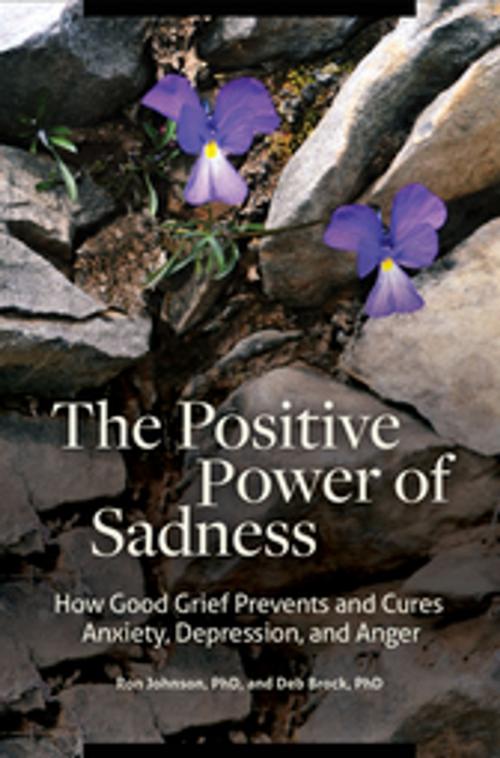The Positive Power of Sadness: How Good Grief Prevents and Cures Anxiety, Depression, and Anger
Nonfiction, Health & Well Being, Psychology, Emotions, Mental Health| Author: | Ron Johnson Ph.D., Deb Brock Ph.D. | ISBN: | 9781440855009 |
| Publisher: | ABC-CLIO | Publication: | March 9, 2017 |
| Imprint: | Praeger | Language: | English |
| Author: | Ron Johnson Ph.D., Deb Brock Ph.D. |
| ISBN: | 9781440855009 |
| Publisher: | ABC-CLIO |
| Publication: | March 9, 2017 |
| Imprint: | Praeger |
| Language: | English |
Sadness is generally characterized as a negative emotion, yet experiencing sadness plays a positive and key role in achieving and maintaining mental health and in avoiding anxiety, depression, and anger. Indeed, sadness can be understood as a normal and necessary feeling that always occurs when one loses something that is loved. The Positive Power of Sadness examines the experience of sadness, taking into account the personal, relational, and neurological factors of sadness; explains the cultural reasons that many resist feeling sad and consequently displace sadness into secondary processes; and provides a practical and systematic way to overcome anger, anxiety, and depression by allowing the normal process of being sad to occur.
This simple paradigm of love and loss causing joy and sorrow in tandem is founded on solid research, carefully considered theory, and extensive experience and will serve to stimulate further thought and writing. Professional therapists, psychologists, counselors, teachers, and clergy who work with people in various settings will find this enlightening reading, as will general readers seeking self-help or possessing an interest in psychological functioning or relational difficulties.
Sadness is generally characterized as a negative emotion, yet experiencing sadness plays a positive and key role in achieving and maintaining mental health and in avoiding anxiety, depression, and anger. Indeed, sadness can be understood as a normal and necessary feeling that always occurs when one loses something that is loved. The Positive Power of Sadness examines the experience of sadness, taking into account the personal, relational, and neurological factors of sadness; explains the cultural reasons that many resist feeling sad and consequently displace sadness into secondary processes; and provides a practical and systematic way to overcome anger, anxiety, and depression by allowing the normal process of being sad to occur.
This simple paradigm of love and loss causing joy and sorrow in tandem is founded on solid research, carefully considered theory, and extensive experience and will serve to stimulate further thought and writing. Professional therapists, psychologists, counselors, teachers, and clergy who work with people in various settings will find this enlightening reading, as will general readers seeking self-help or possessing an interest in psychological functioning or relational difficulties.




![Cover of the book The Central Intelligence Agency: An Encyclopedia of Covert Ops, Intelligence Gathering, and Spies [2 volumes] by Ron Johnson Ph.D., Deb Brock Ph.D.](https://www.kuoky.com/images/2015/december/300x300/9781610690928-wayb_300x.jpg)





![Cover of the book Heaven, Hell, and the Afterlife: Eternity in Judaism, Christianity, and Islam [3 volumes] by Ron Johnson Ph.D., Deb Brock Ph.D.](https://www.kuoky.com/images/2013/july/300x300/9781440801846-WZ4X_300x.jpg)

![Cover of the book The Roman Empire: A Historical Encyclopedia [2 volumes] by Ron Johnson Ph.D., Deb Brock Ph.D.](https://www.kuoky.com/images/2018/may/300x300/9781440838095-UVp7_300x.jpg)


